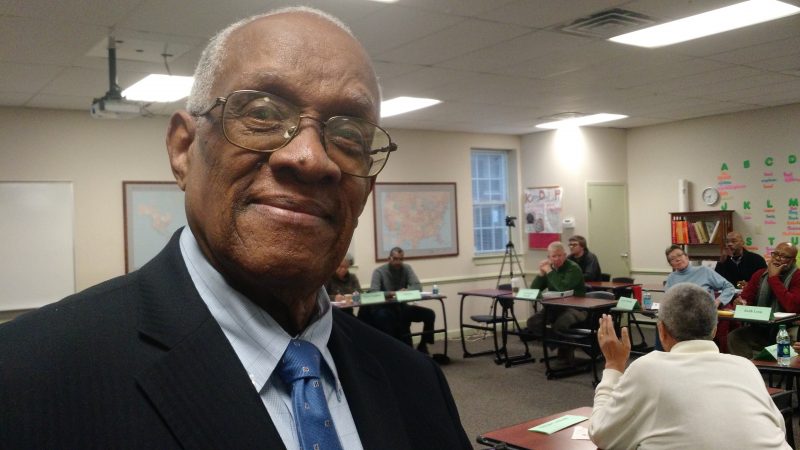This weekend, a minister and civil rights leader who worked alongside Dr. Martin Luther King Jr. came to University of Lynchburg to help local community leaders develop strategies for reducing crime and poverty.
 Dr. Virgil A. Wood was a guest speaker for the Faith-Based Leadership Institute, a program University of Lynchburg launched in 2016. For four months, ministers and other leaders of faith-based groups have been meeting monthly to develop their leadership skills and work on ideas to improve their communities. Dr. Wood’s workshop allowed them to collaborate with someone who intimately knew the vision and dream of Dr. King, whose memory is celebrated today.
Dr. Virgil A. Wood was a guest speaker for the Faith-Based Leadership Institute, a program University of Lynchburg launched in 2016. For four months, ministers and other leaders of faith-based groups have been meeting monthly to develop their leadership skills and work on ideas to improve their communities. Dr. Wood’s workshop allowed them to collaborate with someone who intimately knew the vision and dream of Dr. King, whose memory is celebrated today.
“I am overwhelmed with delight at what you’re doing here,” Dr. Wood said of the leadership institute. “I trust that it will be a great blessing to the things you’re involved with here. But I know also that you are prototyping a model that is needed across the country.”
Dr. Wood noted that the 50th anniversary of Dr. King’s death is approaching next year, and he worries about how much work remains to build what Dr. King called “a beloved community.”
“The memorial to Martin Luther King should be the renewal of at least 40 cities in America,” he said. “And since we haven’t done it yet, we ought to have an incredible start in that direction.”
Dr. Wood said that creating a beloved community — and a “beloved economy” to accompany it — requires collaboration across racial lines. Referring to Dr. King’s well-known statement that “The arc of the moral universe is long, but it bends toward justice,” he pointed out that, “Everywhere it bends, there stands a black person and a white person.” For example, Frederick Douglass and Abraham Lincoln. Members of both races must work together to effect change, he said.
Dr. Wood and the local leaders talked about challenges of poverty, education, and crime in Lynchburg and discussed ideas for creating a more just environment. He encouraged more specific targets to help community organizations and citizens work together on common goals.
He expressed hope that the leaders of faith communities, with the training they are receiving, to create positive change in Central Virginia. “I really believe that Lynchburg could be Montgomery [because of] the resources that you have put together,” he said, pointing out that Dr. King chose to work in cities where local leaders had laid the foundation for civil rights action. “What you are doing right here is so unique from anything else that’s happening in this country.”

